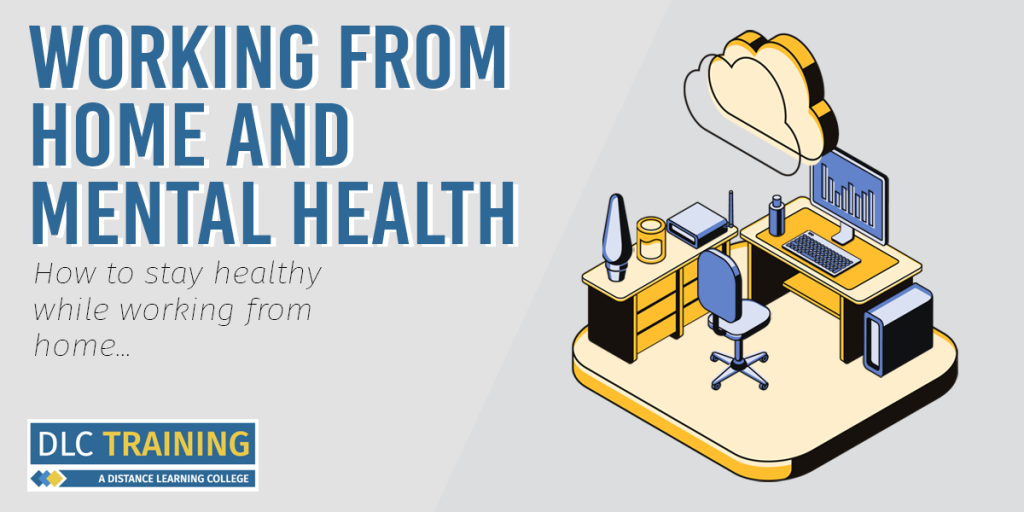The COVID-19 pandemic forced many of us to work and study from home. While there are many advantages to these arrangements, such as not having to commute, being able to create a flexible schedule and greater access to more career opportunities, there are also some challenges. One of the biggest challenges is safeguarding our mental health. Let’s take a look at some of the ways we can do that.

The importance of a routine
One of the most important things you can do is create a regular routine and stick to it as much as possible. This means getting up at a similar time each day, taking regular breaks, and making time for physical activity. It’s also important to set boundaries between work and leisure time; when you’re done with work for the day, make sure to do something that you enjoy and that helps you relax.
What to include in your routine?
Enough sleep
One of the most important things you can do for your mental health is to get enough sleep. Most people need between 7 and 8 hours of sleep per night, and if you’re not getting that, it can take a toll on your mental health. If you find that you’re having trouble sleeping, there are a few things you can do to try to improve your sleep quality, such as avoiding caffeine before bed and establishing a regular sleep schedule.
Time to create a healthy diet
Another important thing to do for your mental health is to eat a healthy diet. Eating nutritious foods helps to keep your body and mind healthy, and can help to improve your mood. If you find that you’re not eating as well as you’d like, there are a few simple changes you can make, such as adding more fruits and vegetables to your diet or cutting back on processed foods. But you have to give yourself time in the day to prepare to avoid making poor choices in a rush.
Exercise
Exercise is also important for mental health. It helps to release endorphins, which have mood-boosting effects, and can also help to reduce stress and anxiety. If you’re not used to exercising, start slow and gradually increase the amount and intensity of exercise you’re doing. Even just going for a walk every day can make a big difference.
Breaks
When you’re working from home, it’s important to take breaks from work so that you don’t get burnt out. Make sure to take at least a few minutes each day to step away from your work and do something else, such as taking a walk or reading a book. And when you have holidays or days off, make sure to use them to relax and rejuvenate so that you can come back to work feeling refreshed.
Your social life
It’s also crucial to stay connected with friends and family. Social interactions are an important part of our mental well-being, so make sure to schedule time for video chats, phone calls, or even just sending some funny texts back and forth. If you live alone, consider joining an online community or interest group. This can help you feel less isolated and more connected to others.
Limits on work
When you’re working from home, it’s easy to let work take over your life if you’re not careful. That’s why it’s important to set limits on how much time you’re going to spend working each day, and stick to those limits as much as possible. It can also be helpful to set aside specific times for work and specific times for personal activities so that you don’t start blurring the lines between the two too much.
Things you enjoy
It’s also important to have hobbies outside of work so that you don’t start feeling like your entire life is about work. Find something that you enjoy doing in your free time that has nothing to do with work, such as playing a sport, taking up a new hobby, or volunteering for a cause you care about. Doing things that make you feel good outside of work can help improve your mental state overall.
Working from home can be a great arrangement, but it’s important to take care of our mental health while doing so. Make sure to pay attention to your well-being and seek professional help if you’re feeling overwhelmed or struggling to cope. We all need a little extra help sometimes, so don’t be afraid to reach out for it.